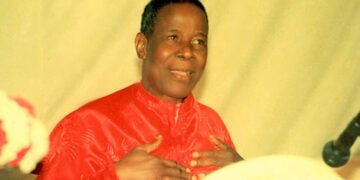A group, the Great Minds Initiative (GMI) for Empowerment and Social Development, has called for a national shift towards AI-driven transparency in the way government institutions manage and share public data, particularly environmental information.
The call was made at the weekend during the FOI Day Conference hosted by the National Information Technology Development Agency (NITDA) in Abuja, which brought together government officials, civil society organisations, academia, international development partners, and media professionals.
The event, with the theme “Ensuring Access to Environmental Information in the Digital Age,” provided a platform for key stakeholders to reflect on the role of information access in advancing transparency and sustainable development.
Delivering a keynote address entitled “Making Environmental Data Accessible, Open, and Digital,” GMI’s national coordinator, Ambassador Michael Ngbe, emphasised the urgent need for Nigeria to adopt modern digital tools.
He noted that in an era defined by climate change, flooding, and increasing pollution, citizens must be able to access, understand, and trust environmental information.
He said this could be the key to enhancing community resilience and ensuring effective disaster preparedness and response.
Ambassador Ngbe highlighted several strategic approaches to improving data transparency in the country.
He advocated for the creation of open, multilingual, and mobile-friendly digital platforms that offer real-time access to environmental data.
He also stressed the importance of citizen co-creation, encouraging communities to crowdsource and contribute data to official systems. Moreover, he proposed using artificial intelligence to simplify complex datasets into user-friendly formats such as dashboards and scorecards, making data more understandable and actionable for everyday Nigerians. Another key point he raised was the need to foster strong partnerships between civil society and government to build trust and ensure collaborative accountability.
Ambassador Ngbe proposed a formal partnership between GMI and NITDA to pioneer an AI-driven open data ecosystem in Nigeria. This, he said, would ensure that environmental information is not only technically sound but also accessible and usable by the public.
He noted that Nigeria must move beyond analog methods of crisis response and fully embrace digital solutions if it hopes to address the mounting environmental challenges effectively.
“We are in the digital age. Nigeria cannot continue to manage environmental crises with analogue methods. Transparency must evolve with technology, just as climate change is reshaping our existential realities. Access to information must be innovative—data must not only be collected but also simplified, shared, and made usable by ordinary citizens. Governance itself must shift from a reactive to a proactive approach in how information is used,” he said.
Globally, the International Day for Universal Access to Information (IDUAI) is celebrated on September 26





